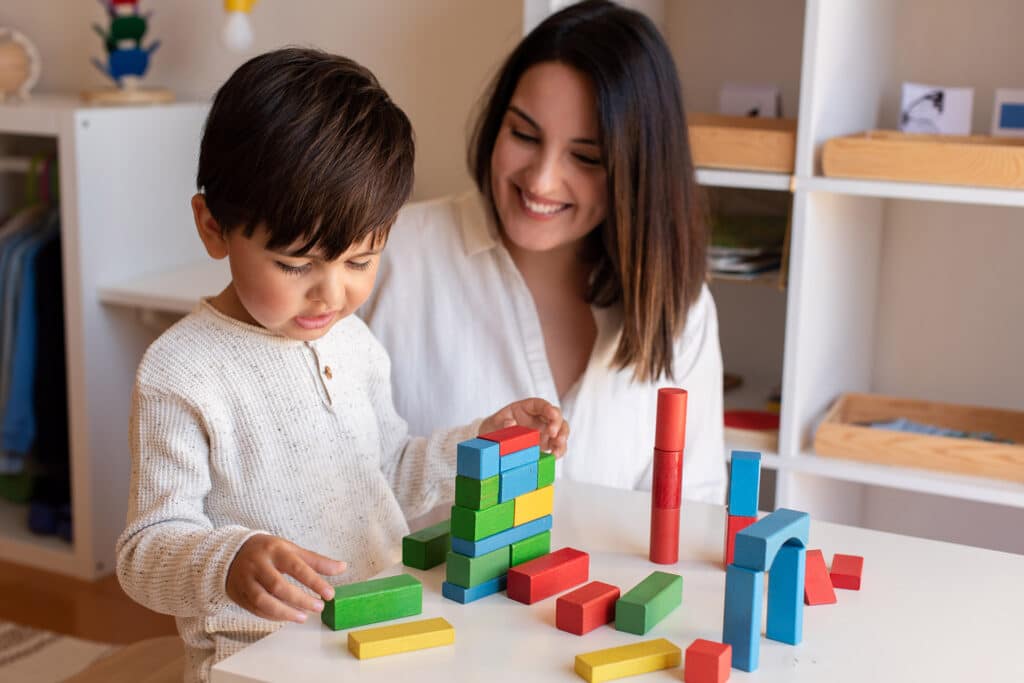The Best Things Parents Can Do For A Child With Autism
Written by: Natalie Roberts, RBT
Reviewed by: Melanie Bren, BCBA, LBA

According to the CDC, in 2020 1 in every 54 children in the United States is diagnosed with autism spectrum disorder (ASD) Any parent or caregiver wants to ensure they are taking the necessary steps to ensure that their child with an autism spectrum disorder diagnosis has the best opportunities to thrive and the support that sets them up for success. There is an infinite list of ways to benefit a child on the autism spectrum and having the care to explore options is a great way to start!
The Best Things To Do As Treatment
Children can be reliably diagnosed with autism spectrum disorder as early as age 2. Early intervention, or a child receiving intervention to treat autism spectrum disorder in infancy or toddler-aged, creates the best opportunity for healthy development. Early intervention has substantial evidence regarding benefits across the child’s lifespan. It is important for children diagnosed at a young age to begin early intervention as to improve various life skills such as communication, social skills, cognition and brain development in general.
The most effective treatments for symptoms from an ASD diagnosis, at this time, is applied behavior analysis (ABA), occupational therapy, speech therapy, and physical therapy. By enrolling your child with an ASD diagnosis in proper treatments and interventions, you are giving your child the best opportunity for success. Beginning intervention is only the first step, however.
Creating schedules and making sure that it is followed to the best degree possible is a crucial part of any treatment. Treatments work best when they are done consistently and children with ASD also generally thrive in with schedules that are set and predictable. Interventions also need to be followed through at home. Being consistent with treatment plans create environments and systems in which children are set up for success and learn important life skills quickly and effectively.
The Best Things To Do In Your Personal Life
Many children with an autism spectrum disorder diagnosis have specific symptoms that affect their day-to-day life. Sensitivity to certain sensory inputs is common among children with ASD. These sensitivities can be over- or under- sensitivity to sensory inputs such as smell, pain, touch, lights, taste, and other stimuli. Being aware of your child’s unique sensitivities is important as to ensure that they are as comfortable as possible and have the best opportunity to succeed and focus on other things without being muddled by discomfort.
Create Reinforcements
It is also important to find out the things that your child likes and dislikes, in general, not just limited to sensitivities. Finding strong motivators is a great way to create a vast amount of reinforcers which will, in turn, create more opportunities to learn through! It will make things easier for both you and your child to have a firm understanding of their comfort in order to best assist them.
While reinforcement is commonly done during ABA therapy, it is also beneficial for children with ASD to receive reinforcement at home too! Take notice of behaviors that you want to see more of and positively reinforce them with the motivators that you know your child enjoys and specific social praise. This will not only help your child have a better understanding of functional behavior, but is a fun way to be involved with teaching your child.
Maintain a Schedule
Other things to promote success in your child is to maintain schedules that encourage the child to advance in all aspects of their life. These schedules are not limited by only treatments, but also in their day-to-day life. Children with ASD tend to prosper in structure and routine. When schedules change, attempt to let your child know to help facilitate the change. However, a symptom of ASD is rigidity and intolerance to change. Schedules are important, but we also need to teach your child to be flexible in certain times.
Build Communication
Communication is essential in facilitating understanding of the needs and wants of your child. As we know, communication can be difficult for children with an autism spectrum disorder diagnosis. Finding the best form of communication that is efficient and effective will ensure that you are able to provide the wants and needs expressed by your child. Inadequate forms of communication can be detrimental to your child for obvious reasons, like the inability to adhere to your child’s physiological needs like knowing if they need to go to the bathroom, are thirsty, hungry, etc.
It can also result in the Communication Hypothesis (Carr, 1985) coming to play, in which it is hypothesized that individuals who are unable to communicate how they are feeling and what their needs and wants are end up engaging in problem behaviors (ex: tantrum, crying whining, aggression, etc.) over it. Communication plans can be created by Autism services including ABA and implemented by all parties. It’s extremely important that interventions are implemented consistently across people (school teachers, therapists, family members, etc.) and settings (school, community, home).
Finding a successful way to communicate also creates opportunities for your child to advance and create a strong base for education. A few ways in which we can teach children to communicate appropriately (and replace problem behaviors) is by using a picture exchange system, sign-language, communication device and/or vocal language.
Provide a Safe Environment
A lot of what you can do for your child with autism is the same as what you would do for a child without autism. Empathy and care are the key skills to assist you with raising your child. Loving your child through turmoil and adhering to anything that would benefit them is a part of parenting. Keeping your child safe and creating environments in which they are able to most benefit will make for a happy life for you and your child.
Be unafraid to ask for help. Keep life fun for your family. Remember that each child is unique and different so keeping things individualized for them is the best way to go in creating treatments that are most likely to ensure success.
Date Posted:
October 18, 2021
Share this blog
Categories
Recent Blog Posts








